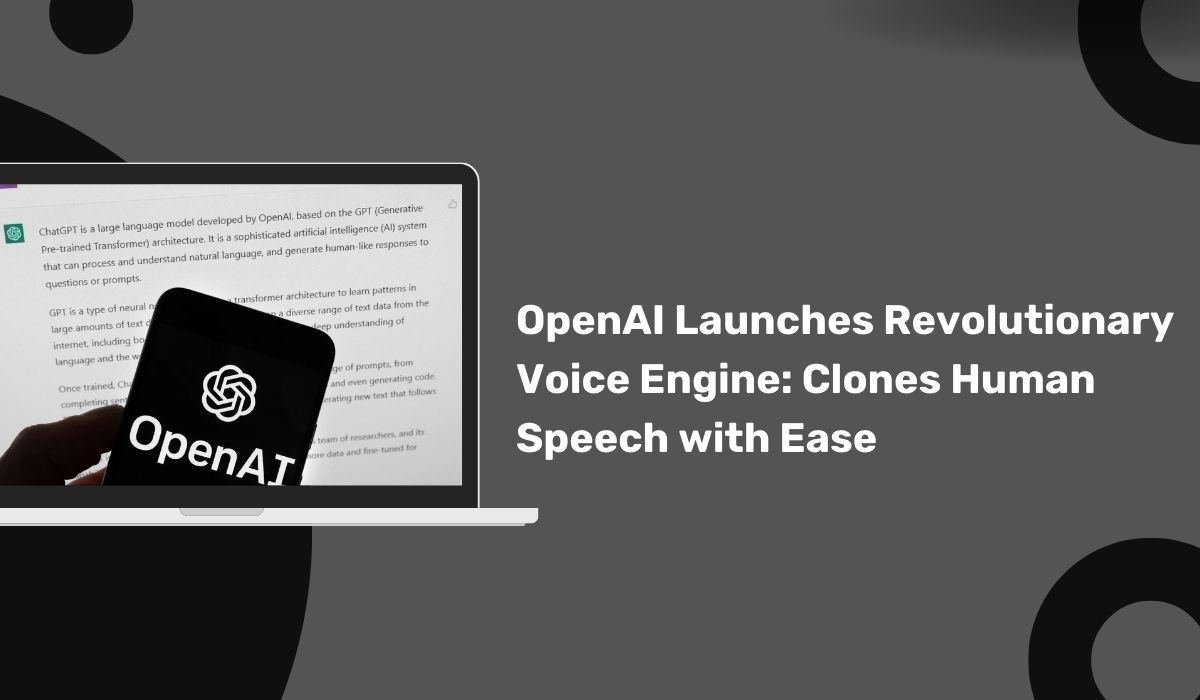
OpenAI, the innovative company renowned for its AI chatbot ChatGPT, has recently revealed its latest marvel: a revolutionary AI model known as Voice Engine. This cutting-edge technology, introduced on March 29, boasts the remarkable ability to replicate any voice in any language with just a brief audio sample. Voice Engine allows users to upload a mere 15-second audio snippet, which it then utilizes to generate audio mimicking the same voice and speaking style. For instance, if provided with a sample of a man's voice and instructed to "Make him sing the American national anthem," the model will analyze the input and produce an output in that voice. Furthermore, it can generate audio clips of the same speaker conversing in another language.
Despite the significant potential of Voice Engine, OpenAI has chosen to withhold its public release, purportedly due to concerns regarding safety. The company's decision stems from apprehensions about potential misuse, a topic we delve into shortly. Voice Engine, in essence, is a text-to-audio tool capable of creating new audio content based on a provided voice sample and written prompt. Moreover, it possesses the ability to replicate voices across various languages, making it a versatile asset in the realm of artificial intelligence.
OpenAI's groundbreaking Voice Engine promises to revolutionize several domains, offering unparalleled benefits in three key areas. Firstly, it facilitates reading assistance, enabling non-readers and children to learn and comprehend languages through natural-sounding, emotive voices. Additionally, professionals and content creators stand to benefit immensely from its capability to translate content while preserving the original speaker's accent and tonal nuances, thereby enhancing the realism of translated audio material. Lastly, Voice Engine holds promise in supporting non-verbal individuals, aiding in their communication efforts and offering new possibilities for individuals facing speech challenges. However, alongside its immense potential, Voice Engine raises concerns regarding its potential misuse. Instances of AI voice cloning being utilized to deceive individuals have been on the rise, fueled by advancements in deep learning algorithms that yield increasingly realistic results. With elections looming in over 60 nations this year, the threat of malicious actors exploiting such technology to manipulate public sentiment looms large, highlighting the urgent need for regulatory frameworks to address these risks.
OpenAI has acknowledged these concerns and affirmed its commitment to responsible deployment of Voice Engine. The company has engaged with stakeholders from various sectors, including government, media, entertainment, and civil society, to solicit feedback and incorporate safety measures. These measures include stringent usage policies prohibiting impersonation without consent, mandatory disclosure of AI-generated voices to audiences, and proactive monitoring of Voice Engine's usage. Moreover, OpenAI has proposed initiatives such as a "no-go voice list" to prevent the creation of voices resembling prominent figures, underscoring its dedication to mitigating potential risks associated with its cutting-edge technologies. As OpenAI continues to pioneer the development of powerful AI tools like Voice Engine, it remains steadfast in its pursuit of realizing the vision of Artificial General Intelligence (AGI). With the responsible deployment of such transformative technologies at the forefront of its agenda, OpenAI endeavors to foster a future where AI serves as a force for positive change in society.